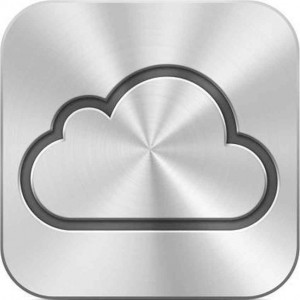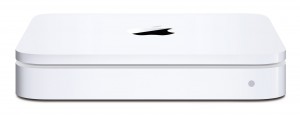There’s been a lot of talk around the Web this week about the deficiencies of iCloud. As anyone who uses it likely knows, it never “just works” the way it’s supposed to. It’s buggy and confusing and unreliable, and several app developers have been griping about its woes lately.
 If it worked, iCloud would be a terrific service. And in some ways, it’s great. Like when tied into iTunes, it usually does a good job of keeping track of your downloads, remembering everything you’ve purchased in the past and letting you re-download them again, or put them on other devices. But with photos and documents, it’s never quite the seamless experience it’s meant to be. (Don’t even get me started on iPhoto.) Which is pretty ironic considering that iCloud was meant to be the file storage and syncing solution that MobileMe never lived up to.
If it worked, iCloud would be a terrific service. And in some ways, it’s great. Like when tied into iTunes, it usually does a good job of keeping track of your downloads, remembering everything you’ve purchased in the past and letting you re-download them again, or put them on other devices. But with photos and documents, it’s never quite the seamless experience it’s meant to be. (Don’t even get me started on iPhoto.) Which is pretty ironic considering that iCloud was meant to be the file storage and syncing solution that MobileMe never lived up to.
But iCloud isn’t Apple’s only backup-and-storage product that sucks. There’s also Time Capsule, that square little box that automatically backs up everything on your Mac. When you first buy Time Capsule, it typically works as advertised. But the consensus among users is that after a short period of time — anywhere from two months up to a year — it becomes a glitch-filled brick.
 My family has a Time Capsule. In fairness, it’s about two years old, and most backup drives have a life expectancy of around two years. But ours hasn’t worked in months. It worked great out of the box, but about a year in, it started acting weird. Its internal WiFi router has always worked flawlessly. It’s more reliable and more powerful than our old AirPort ever was. The hard drive is a different story, though. It regularly returns error messages, it’s never able to complete a backup, and seems to cause more problems on our Macs than it solves. We still use it for the router, but rarely bother trying to back up anymore.
My family has a Time Capsule. In fairness, it’s about two years old, and most backup drives have a life expectancy of around two years. But ours hasn’t worked in months. It worked great out of the box, but about a year in, it started acting weird. Its internal WiFi router has always worked flawlessly. It’s more reliable and more powerful than our old AirPort ever was. The hard drive is a different story, though. It regularly returns error messages, it’s never able to complete a backup, and seems to cause more problems on our Macs than it solves. We still use it for the router, but rarely bother trying to back up anymore.
So I’ve been looking into backup alternatives lately. We all love Dropbox because it’s so easy and so good at sharing files between devices, but there are other options. Google Drive, Amazon Cloud Services, Microsoft SkyDrive, Box, Mozy, and others provide endless options for backing up. Dropbox and Box typically suit my needs just fine, but it’s worth shopping around to get the best price. There are other options to consider, too, like storage sizes, number of machines you can link to a single account, what file formats it accepts, and more. (If you need help making sense of all those options, I recommend comparison site Best Backups.)
What’s your experience been? Does iCloud work for you? How about Time Capsule? Or do they both — as they have been for me — represent Apple’s broken promises?





10 thoughts on “Why You Need an iCloud Alternative”
Not to mention the great Calendar-Sync. Now I have 4 Calendars (iPad, iPhone and Mac + iCloud) with different Content.
We have reviewed quite a few different cloud drives and find the best alternative to icloud, google to be thexyz – https://www.thexyz.com
What exactly is “buggy and confusing” about iCloud? Your article went on a rant, offering the obvious alternatives, without ever articulating a specific complaint.
I assumed that if you chose to read this article, you already know the complaints many iCloud users have about it, and you’ve very likely experienced those problems for yourself. If you really have no idea, go to any tech blog and run a search for “icloud.” TheVerge, Gizmodo, Engadget, TechCrunch, NextWeb — They’ve all written about iCloud’s deficiencies at great length.
But hey man, if iCloud works perfectly for you, then by all means stick with it. I’m sure there are some users for which it does its job beautifully. I fear they’re in the minority, though.
You haven’t answered my question, really. I read the article because the headline made me think perhaps there was something wrong or inadequate with iCloud that I was unaware of.
You also start by claiming iCloud “never works the way it’s supposed to.” Is that really so?
Since iCloud is really an array of different cloud services bundled under one name, it seems odd and misleading to discard the whole thing as simply “bad”…
The iCloud suite of core apps (Calendar, Mail, Address Book, Notes, Reminders) all work exceptionally well. Photostream is also incredibly fast and easy, but iPhoto integration is still clumsy, unless you select to have iPhoto save everything from the stream all the time. (And who would want that?) Documents in iCloud is perhaps the most promising, yet currently flawed, feature. While it’s great to say, edit a Pages document on any device, anywhere, it lacks the speed of Google docs.
You’ve honed in on backing up, almost as if that is iCloud’s only function. And it’s true, that aspect needs work. While iOS devices backing up to iCloud overnight is great, restoring from iCloud is an hours-long chore.
I promise I’m not trying to blow you off! I simply haven’t had time to research and write about this myself. It was never my intention to write an article about the deficiencies of iCloud, but rather the options available to those who (like me) find it lacking. I’m hardly alone in this opinion. If time allows in the future, I’ll write about the most common issues that most users experience. My own negative experiences are centered mostly around iPhoto and Calendar, neither of which synchronize for me as advertised. In the meantime, like I said, I’ve seen plenty written about it elsewhere by journalists more knowledgeable than myself about the technology behind how iCloud *should* work vs. how it does.
What’s most curious: your article offers us alternative backup services to iCloud, without mentioning iCloud’s backup capabilities whatsoever.
You discredit iCloud for various syncing flaws, and then offer us a number of backup services– none of which offer comparable syncing services.
Despite your lack of time for research, I do expect you know the difference.
Okay, point taken. Yes, syncing and backing up are two different things. And I should have prefaced the article not by pointing out iCloud’s flaws, but with something more generic. Maybe something like, “If, for whatever reason, you’d rather not use iCloud as your backup solution, there are plenty of other options…” There are legitimate reasons outside of glitches that users might opt not to use iCloud to backup their data, after all. Available storage size and pricing, for example.
Thanks for the reply.
As far as I know, iCloud only offers back-up for iOS devices, not for Macs. (For example, it won’t store your photos, it merely relays them to other machines. So you could set iPhoto to receive and save your entire photo stream to your Mac.) And while it’s comforting to know my iOS devices are backing up while I sleep, restoring from iCloud servers can take HOURS, making it almost useless.
Personally I think the killer combo is the ease of iCloud syncing, paired with the reliability of other off-site backup services.
I agreed, iCloud could be so much better, but does any of your iCloud alternatives mentioned in Best Backups article you link too, come for free (except that hideous thing called Dropbox) and integrate with my apps like iPhoto, Keynote, Pages, Numbers and so on? Until there is an alternative that does just that, I stick with iCloud (although I sync my documents manually with iTunes and I don’t touch Photostream).